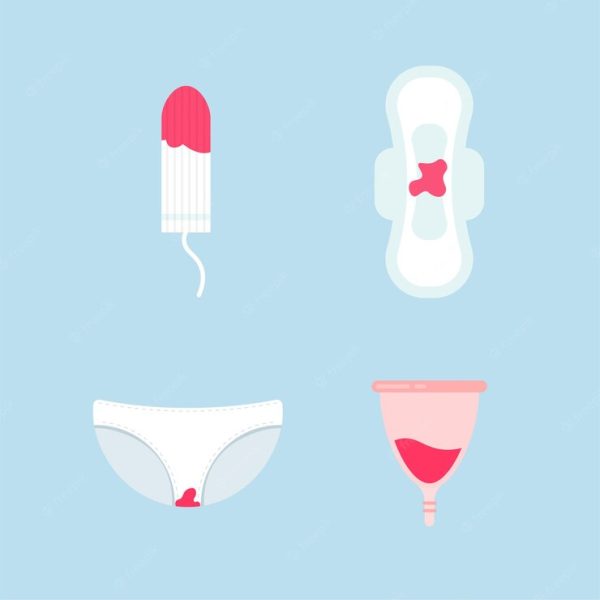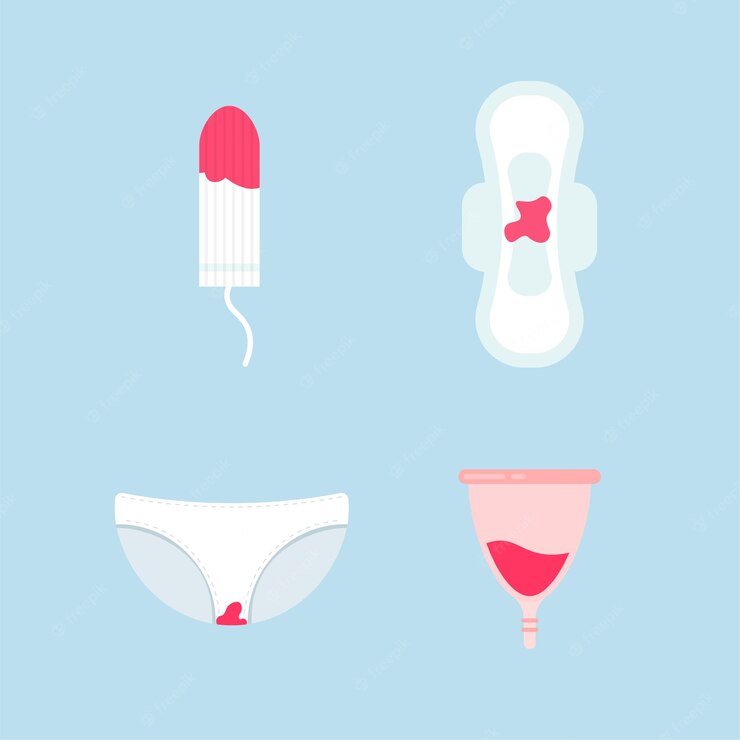 In 1896, Johnson & Johnson released the first disposable pads made from cotton and gauze—an average individual who menstruates typically experiences about 450 periods in their lifetime. The approximate cost for feminine products is $20 per cycle. Women roughly spend about $9,000 on period products in their lifetime. Many women can’t always afford to buy feminine products which is why the School provides free menstrual product dispensers but they always remain empty.
In 1896, Johnson & Johnson released the first disposable pads made from cotton and gauze—an average individual who menstruates typically experiences about 450 periods in their lifetime. The approximate cost for feminine products is $20 per cycle. Women roughly spend about $9,000 on period products in their lifetime. Many women can’t always afford to buy feminine products which is why the School provides free menstrual product dispensers but they always remain empty.
In October of 2021, The Menstrual Equity for All Act was passed where and by whom. This act states that all public schools must provide free and accessible menstrual products in all women’s restrooms. The rationale behind the law was to lessen the negative effects that period poverty has on female pupils at school. Furthermore, schools are required to post visible notices alerting female students to their rights to have free menstrual products.
The visible notice should be posted in all female restrooms and include the Education Code § 35292.6, and contact details such as email and phone number, for the school admin members in charge of restocking menstrual products in restrooms. At ELARA, due to the law, menstrual product dispensers were installed in all the bathrooms. Despite them being installed all feminine product dispensers are empty making them unreliable because students are not able to get a free product when there’s an emergency. When a female student has an emergency she would have been able to get a menstrual product from the dispensers but since the school never restocks them, they wouldn’t be able to rely on the dispenser. Because menstrual emergencies can happen the school should always have the product dispensers stocked to prevent another accident from happening.
“Many individuals are unaware of the fact that period poverty in the U.S. is real,” said Shruti Sathish, who was a senior in High School in Wisconsin. (womensenews.org) Due to a shortage of access to menstruation supplies, over one in five girls have either missed school or left home early. Period Poverty, defined by The American Medical Women’s Association, is described as not having access to menstruation supplies which has been connected to poor education, missing work, UTIs, and depression according to IHPL. Thinx, a company that manufactures feminine hygiene products has tracked period poverty in the U.S. It found that 23% of students have struggled to afford menstrual products. (NPR.org) . If the school doesn’t provide the products how should they expect students to not attend or go home early since they can’t
Photo Courtesy of Goauntflow.com has access to menstrual products. “It is a false advertisement. What happens when there is an emergency and there’s no products?,” Kailee Freyre, Senior at ELARA. Students have to rely on their friends or the nurse’s office for products but there’s not much for everyone. Because of not being able to access a feminine product, causes many students to leave home early and miss out on assignments. Missing out on assignments every month needs to change which is why female students should have access to menstrual products for free.
Schools need to realize that not all women have access to feminine products because of how expensive it can be to buy products every menstrual cycle. These product dispensers in schools are free because there are no products for women to get when needed in an emergency or when they need to change their pads. “There is no secureness when there is an emergency,” Kailee says. The California State Legislature is considering having more laws about menstrual products before the laws we already have so that females can have access to free menstrual products in hospitals (IHPL).
The school should be using these dispensers so that they can help their female students when needed. In other countries, females have to pay or don’t even have dispensers installed in restrooms. In India, according to data reported by the Ministry of Health and Family Welfare, only 12% of females had access to sanitary products. Many depend on conventional unhygienic methods during menstruation. (Ncbi.gov) Many female students here in the U.S. miss school because of period-related situations. Young women will not be missing school if this problem is resolved. 1 in 5 girls miss school due to lack of menstrual products. (Michigan University) East LA. Renaissance Academy has had these dispensers for a long time and not once have they been used because they are not stocking them up for females to use. The school needs to realize that females need menstrual products and should continuously keep restocking products. Female students at ELARA can changethis situation by clicking on the link below.


